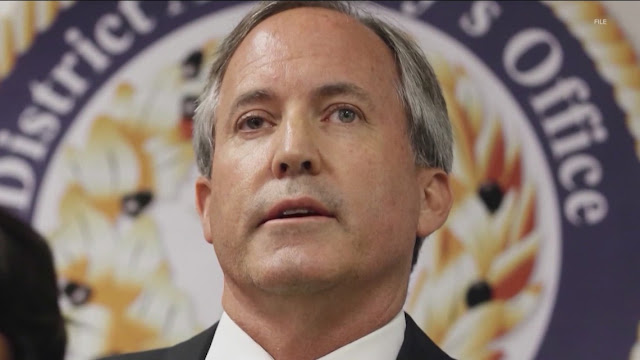The San Antonio City Council narrowly voted 6–5 to allocate an additional $100,000 to its Reproductive Justice Fund last week, a move that has now sparked legal action from Texas Attorney General Ken Paxton. The added funding is intended to support “downstream services,” which city officials have confirmed may include travel expenses for individuals seeking out-of-state abortions — a controversial expansion that has ignited legal and political backlash.
The Reproductive Justice Fund, originally established in September 2023 with $500,000, was touted as a way to bolster access to reproductive health services, particularly for underserved residents. However, when the city staff presented their award recommendations in October 2024, they explicitly excluded funding for abortion-related travel.
That changed after some council members submitted a memo requesting that the city identify an additional $100,000 for services that could include such travel. The expedited vote last week approved the request, prompting swift legal retaliation from the state.
Paxton Files Suit, Requests Restraining Order
In response to the vote, Attorney General Ken Paxton filed a lawsuit against the City of San Antonio and asked a judge to grant a temporary restraining order to halt the disbursement of funds.
“The City of San Antonio is blatantly defying Texas law by using taxpayer dollars to fund abortion tourism,” Paxton said in a press release. “Beyond being an egregious misuse of public funds, it’s an attack on the pro-life values of our state.”
The lawsuit accuses the city of violating both the Texas Constitution’s Gift Clause — which prohibits government entities from giving public money to private parties without a clear public benefit — and the state’s penal code, which criminalizes aiding and abetting abortion.
Paxton argues that because Texas law prohibits most abortions, facilitating out-of-state procedures cannot serve a legitimate public purpose or benefit. The lawsuit further claims that San Antonio is attempting to circumvent state policy by funding what Paxton refers to as “abortion tourism.”
Council Vote Highlights Division
The 6–5 vote laid bare deep divisions among city leadership. Council Members Adriana Rocha Garcia, Marina Alderete Gavito, Manny Pelaez, John Courage, and Marc Whyte opposed the measure. Several cited legal concerns, fiscal responsibility, and a mismatch with city priorities.
Council Member John Courage said he didn’t view abortion travel funding as falling within the “scope of responsibilities” of city government. Alderete Gavito warned that the action would likely lead to a lawsuit from the state and said the fund increase could ultimately cost taxpayers more due to legal fees.
Those in favor, including Council Member Teri Castillo, argued the funding is a matter of healthcare access and bodily autonomy.
“Texas has criminalized miscarriages,” Council Member Melissa Cabello Havrda said during the meeting, claiming that women who miscarry are being interrogated and denied care. However, state law explicitly distinguishes between miscarriages and elective abortions, stating that procedures to remove a deceased fetus due to spontaneous abortion are not considered illegal abortions.
Looming State Legislation and Political Calculations
The timing of the city’s vote has raised questions. Senate Bill 33 — authored by Sen. Donna Campbell (R-New Braunfels) — would bar any Texas governmental entity from using funds to aid in procuring abortions, including travel expenses. The bill was voted favorably out of the Senate State Affairs Committee on April 3, just days before the San Antonio vote, and has been designated a legislative priority by Lt. Gov. Dan Patrick.
At the council meeting, one public speaker speculated that the city’s urgency to act may have been a preemptive move before SB 33 becomes law.
Previous Legal Challenges
The city is no stranger to legal pressure over its Reproductive Justice Fund. After its creation in 2023, several conservative and pro-life groups, including the San Antonio Family Association and Texas Right to Life, filed lawsuits seeking to block any use of public funds for abortion-related services, including travel.
Despite these challenges, the city has maintained that the program is legally sound. In a statement to local news outlet KSAT, the city attorney’s office said they remain “confident” the program is “compliant with local, state and federal law.”
What’s Next?
The case now heads to court, where a judge will decide whether to grant Paxton’s request for a temporary restraining order. As state lawmakers prepare to vote on SB 33, all eyes remain on San Antonio — and the courtroom.
















